It’s not everyone who can say they spent their Saturday judging at a World Championship event, but I did just that at the weekend.
The vibrant village of Carrbridge in the Cairngorms National Park has played host to the Golden Spurtle – so named for the wooden implement traditionally used to stir porridge – World Porridge Championships for 29 years.
A completely volunteer-run event, this small village comes to life as competitors and their supporters descend in the days prior to partake of some exceptional Highland hospitality. The village hall is buzzing with activity as the flags of the competing nations are hung, and this year included Iceland, Australia, Sweden, Cyprus and England, as well as several saltires for the many homegrown porridge-makers.
Thrillingly, I was asked to judge.
I spend a lot of time in the village and its environs, due to it being one of the most stunning places on earth, and being just close enough to home in Perthshire and family in Inverness to allow a quick getaway from either.
The rules for participation are strict, with each competitor asked to deliver two bowls of porridge. One, a traditional, made only with oats, water and salt and the other using oats in any way to create a speciality that will wow the judges. And wow us they did.
No place here though for the quick rolled oats we pop in the microwave or stir up with milk in a pan and have ready and steaming in about three minutes.
The entry guidelines stipulate that only traditional oatmeal may be used. Fine, medium or pinhead and any combination of the three are permitted. You might be forgiven for thinking that there is no way that 32 bowls of plain porridge could possibly taste different. I’ll be honest, I went into this wondering how on earth I’d distinguish between them all, but the range of colours, flavours and textures was so diverse no two bowls tasted the same.
Bowlfuls of difference at World Porridge Making Championship
Each competitor had a slightly different method, adding more or less water, seasoning throughout or at the end and even very specific stirring approaches.
Head judge Neil Mugg, formerly head pastry chef at Gleneagles and now a hospitality education at University of Highlands and Islands, assured us he is met with the same range and variety every year and continues to be awed by the entries.

One of the creative dishes that was served up. Image: Sarah Rankin.Without question, the best part of the event – in truth, tasting almost 60 bowls of porridge did present a challenge – was chatting to the competitors in each of the heats as they stirred, chopped, mixed and measured. This competition attracts entries from all over the world and they bring with them their own ideas and traditions and it was fascinating hearing their stories.
Pavlos, from Cyprus (by way of Birmingham he confessed) made an interesting take on Koupepia (the island’s version of dolmades, or stuffed vine leaves to you and I). Stuffing them with a mix of oatmeal in place of the traditional rice, beef and pork mince, shallot, mint and cinnamon. He used a pressure cooker due to the very tight 30-minute time constraint of the competition, but would usually place the stuffed, cigar-shaped morsels on a trivet of potato, pour in some stock and let them cook away topped with a saucer for 90 minutes in a covered pan. His attempt was valiant, they were delicious and his innovation is to be applauded.
Last year’s speciality winner – an online competition due to the scourge of the coronavirus pandemic – was back to try for the title in person.
Miriam Groot from the Netherlands made a sweet and sour strawberry, chilli and tulip concoction that was topped with fried tulip bulbs. They were utterly delicious, a little like a crisped potato. My fellow judge Kirsten, from KJ’s Bothy Bakes in Grantown-on-Spey, was sent off happy with a bag to add to some of her amazing patisserie.
Recipe for success
But Chris Young, the winner of the speciality showed an imagination and drive that overwhelmed all the judges.
Not content with the four plates the rules require (one for each of the three judges and one for the public to try), he made a further four, presenting us with sweet and savoury versions of his imaginative take on oats in just 30 minutes.
His seared scallops with soy, ginger and spring onion sat atop a pile of oat noodles made by grinding the oatmeal into flour and mixing with salt and water. He used a funky little tool used for extruding spaghetti to squeeze out the noodles into boiling water.
His sweet offering was a delectable mix of yoghurt, honey, pistachio, fig and whisky again served with the noodles, cold this time, and I’d be hard pushed to say which I enjoyed more.
The eventual winner of the Golden Spurtle was Lisa Williams who defended her title from 2021 by making a rich, delicious and perfectly cooked and seasoned oatmeal once again.
We had curry infused oats, edible insects, butternut oat risotto and oat congee with chilli oil amongst many other equally innovative and delicious oaty delights. I have never met more wonderfully eccentric and friendly humans, been more inspired, or more full.
Sarah Rankin is a Menu magazine columnist for The Press and Journal and featured on MasterChef in early 2022. She was a finalist in the show. Sarah is originally from Inverness and lives with her family in Perthshire.
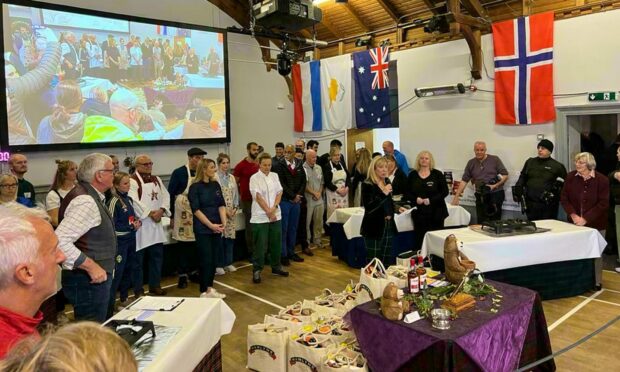
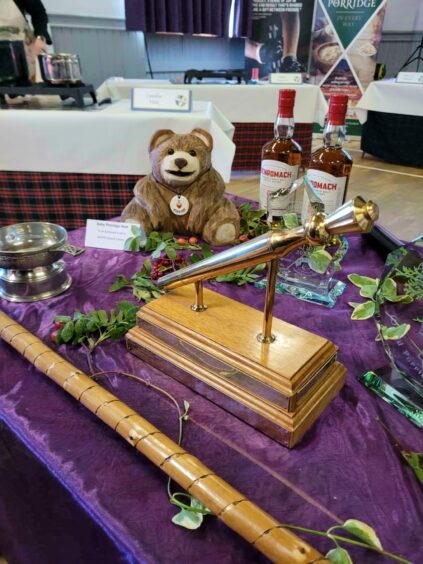
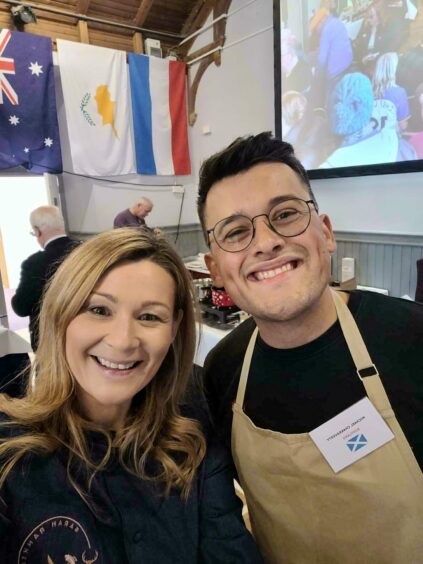
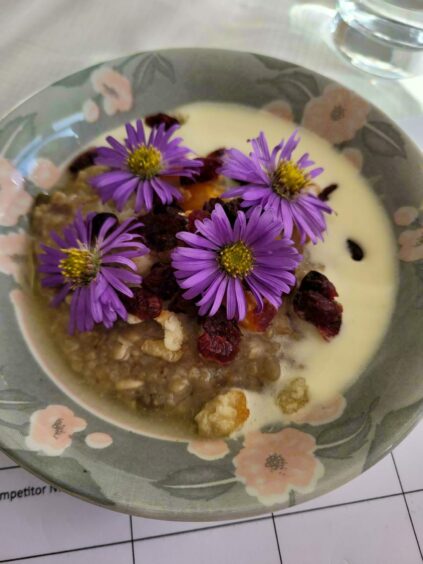

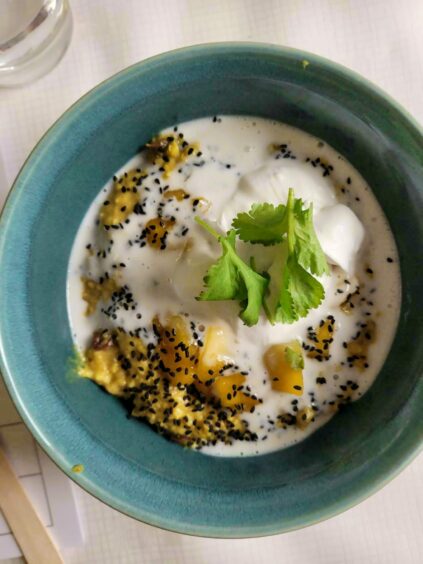
Conversation